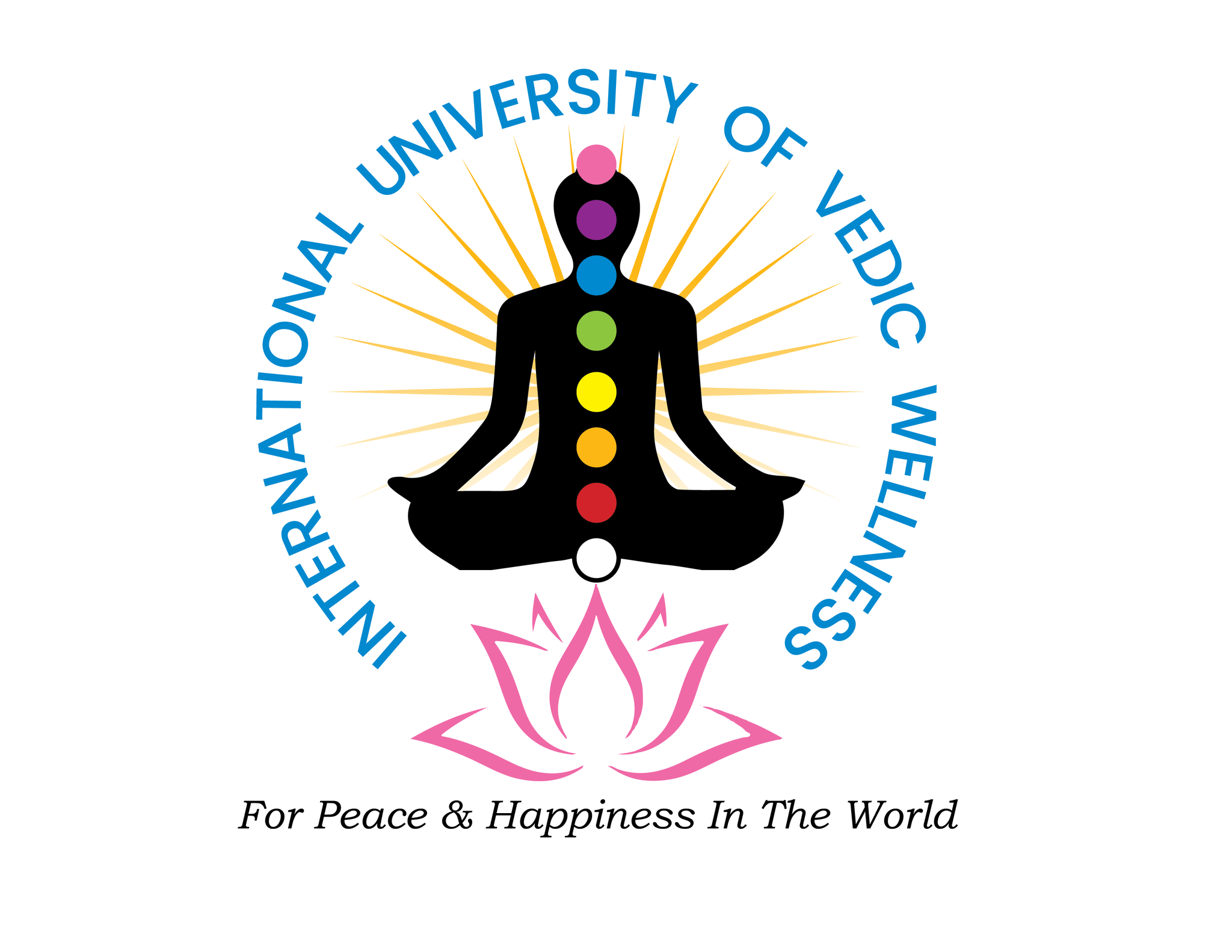Introduction
In the fast-paced, technology-driven world we live in, it is easy to get caught up in the chaos and lose sight of our true purpose. As we navigate through the challenges of modern life, many of us find ourselves searching for deeper meaning and a sense of connection to something greater than ourselves. This is where the timeless wisdom of Vedic studies comes into play. Vedic studies, which encompass a vast body of knowledge from ancient India, offer profound insights into the nature of reality, the purpose of life, and the path to self-discovery. By delving into this ancient wisdom, we can gain a fresh perspective on our lives and find the tools to cultivate inner peace, resilience, and a deeper understanding of ourselves and the world around us.
Understanding Vedic Studies
Vedic studies refer to the study of the Vedas, a collection of ancient Sanskrit texts that form the foundation of Vedic culture. The Vedas are considered to be the oldest known scriptures in the world, dating back over 3,000 years. They contain a wealth of knowledge on various subjects, including spirituality, philosophy, science, and the arts. The four main Vedas are the Rig Veda, Sama Veda, Yajur Veda, and Atharva Veda, each focusing on different aspects of knowledge and ritual.
In addition to the Vedas, Vedic studies also encompass a wide range of auxiliary texts, such as the Brahman, Aranyaka, Upanishads and Puranas. These texts expand upon the ideas presented in the Vedas and provide deeper insights into the nature of reality, the self, and the path to liberation.
At the core of Vedic studies is the idea that true knowledge comes from direct experience and self-inquiry, rather than mere intellectual understanding. The Vedas emphasize the importance of meditation, self-reflection, and the cultivation of inner wisdom as a means to unlock our full potential and achieve a state of pure consciousness.
The Relevance of Vedic Studies in Modern Life
In today’s world, where stress, anxiety, and disconnection are all too common, Vedic studies offer a timeless wisdom that can help us navigate the challenges of modern life with greater ease and clarity. Here are some of the key ways in which Vedic studies are relevant to our lives today:
a. Stress Management: The Vedic tradition offers a range of practices, such as meditation, yoga, and pranayama (breathing exercises), that can help us manage stress and cultivate inner peace. By incorporating these practices into our daily lives, we can develop greater resilience and equanimity in the face of life’s challenges.
b. Self-Discovery: Vedic studies encourage us to turn inward and explore the depths of our own being. Through self-inquiry and meditation, we can gain a deeper understanding of our true nature and purpose, leading to greater self-awareness and personal growth.
c. Holistic Well-being: The Vedic approach to well-being is holistic, recognizing the interconnectedness of mind, body, and spirit. By adopting a Vedic lifestyle, which includes a balanced diet, regular exercise, and spiritual practice, we can cultivate optimal health and vitality.
d. Relationship Harmony: Vedic studies offer valuable insights into the nature of relationships and how to cultivate harmony and understanding with others. By practicing compassion, non-judgment, and effective communication, we can create more fulfilling and nurturing relationships in all areas of our lives.
e. Spiritual Growth: At its core, Vedic studies are a path to spiritual awakening and self-realization. By engaging with the profound teachings of the Vedas and implementing them in our lives, we can experience a deeper sense of connection to the divine and unlock our full potential as spiritual beings.
Key Concepts in Vedic Studies
To fully appreciate the relevance of Vedic studies in modern life, it is helpful to understand some of the key concepts that underlie this ancient wisdom tradition. Here are a few essential concepts:
a. Dharma: Dharma refers to the universal law of righteousness and the path of ethical living. It encourages us to live in alignment with our true nature and to fulfill our unique purpose in life.
b. Karma: The law of karma teaches that every action has a corresponding reaction and that our thoughts, words, and deeds shape our reality. By living with awareness and taking responsibility for our actions, we can create a more positive and harmonious life.
c. Yoga: Yoga, which means “union,” is a comprehensive system of practices designed to cultivate physical, mental, and spiritual well-being. It includes practices such as asana (postures), pranayama (breathing exercises), and meditation.
d. Atman: Atman refers to the true self or the divine spark within each of us. Vedic studies teach that by realizing our true nature as atman, we can experience a profound sense of peace, joy, and interconnectedness.
e. Brahman: Brahman is the ultimate reality or the divine consciousness that underlies all of creation. Vedic studies encourage us to recognize the unity of all things and to experience our oneness with the divine.
By understanding and integrating these key concepts into our lives, we can tap into the transformative power of Vedic wisdom and experience greater clarity, purpose, and fulfillment.
Practical Applications of Vedic Studies
While Vedic studies may seem abstract or esoteric at first glance, they offer a range of practical applications that can benefit us in our daily lives. Here are some examples:
a. Ayurveda: Ayurveda, which means “the science of life,” is a comprehensive system of natural healthcare that originated in the Vedic tradition. By understanding our unique constitution and adopting personalized diet, lifestyle, and herbal recommendations, we can promote optimal health and prevent disease.
b. Vastu Shastra: Vastu Shastra is the Vedic science of architecture and design, which aims to create harmonious living spaces that promote health, prosperity, and well-being. By applying Vastu principles to our homes and workplaces, we can create environments that support our growth and success.
c. Jyotish: Jyotish, or Vedic astrology, is a sophisticated system of understanding the influence of celestial bodies on human life. By consulting with a skilled Jyotish practitioner, we can gain insights into our strengths, challenges, and life path, and make more informed decisions.
d. Vedic Meditation: Vedic meditation techniques, such as Transcendental Meditation (TM), offer a simple and effective way to reduce stress, improve mental clarity, and promote inner peace. By incorporating a regular meditation practice into our daily routine, we can experience profound benefits for our physical, emotional, and spiritual well-being.
e. Vedic Rituals: Vedic rituals, such as fire ceremonies (yagnas) and chanting of mantras, offer a powerful way to connect with the divine, purify our consciousness, and manifest our intentions. By participating in these rituals, we can experience a deeper sense of purpose and alignment with the natural rhythms of life.
By exploring these practical applications of Vedic studies, we can bring the timeless wisdom of this ancient tradition into our daily lives and experience greater harmony, prosperity, and fulfillment.
Vedic Studies and Personal Growth
One of the most significant benefits of engaging with Vedic studies is the opportunity for personal growth and self-discovery. By delving into the profound teachings of the Vedas and implementing them in our lives, we can experience a transformative journey of self-awareness and spiritual awakening.
Vedic studies encourage us to turn inward and explore the depths of our own being. Through practices such as self-inquiry, meditation, and self-reflection, we can gain a clearer understanding of our thoughts, emotions, and behavioral patterns, and work to transform them in positive ways.
The Vedic tradition also emphasizes the importance of cultivating positive qualities, such as compassion, non-judgment, and equanimity. By practicing these qualities in our daily lives, we can develop greater emotional resilience, improve our relationships, and experience a deeper sense of inner peace.
Moreover, Vedic studies offer a framework for understanding the nature of the self and our place in the universe. By recognizing our true nature as divine consciousness, we can transcend the limitations of the ego and experience a profound sense of interconnectedness with all of life.
This shift in perspective can be deeply empowering, as it helps us to let go of fear, attachment, and limiting beliefs, and to embrace our full potential as creative, compassionate beings. As we continue on the path of self-discovery through Vedic studies, we may experience a greater sense of purpose, meaning, and fulfillment in all areas of our lives.
Integrating Vedic Studies into Daily Life
Integrating Vedic studies into our daily lives can seem daunting at first, but it doesn’t have to be a complex or time-consuming process. Here are some simple ways to incorporate Vedic wisdom into your daily routine
a. Start your day with gratitude and intention-setting. Take a few moments each morning to connect with your inner self and set a positive intention for the day ahead.
b. Practice mindfulness throughout the day. Take breaks to focus on your breath, observe your thoughts and emotions, and cultivate a sense of presence and awareness.
c. Incorporate Ayurvedic principles into your diet and lifestyle. Eat seasonally, prioritize whole foods, and engage in daily self-care practices like oil massage and gentle exercise.
d. Make time for regular meditation and self-reflection. Even just a few minutes of meditation each day can have a profound impact on your mental and emotional well-being.
e. Study and reflect on Vedic teachings. Read translations of the Vedas and other Vedic texts, attend workshops or lectures, and engage in discussions with like-minded individuals.
By integrating these practices into your daily life, you can begin to experience the transformative power of Vedic wisdom and cultivate a deeper sense of purpose, clarity, and inner peace.
The Scientific Basis of Vedic Studies
While Vedic studies originated thousands of years ago, many of its core principles and practices have been validated by modern scientific research. Here are a few examples:
a. Meditation: Numerous studies have shown that regular meditation practice can reduce stress, improve mental clarity, and promote emotional well-being. Research has also suggested that meditation can have a positive impact on physical health, including reducing inflammation and improving immune function.
b. Ayurveda: Ayurvedic principles of personalized nutrition and lifestyle have been supported by modern research in the fields of epigenetics and nutrigenomics. Studies have also shown the effectiveness of Ayurvedic herbs and treatments for a range of health conditions, from digestive disorders to chronic pain.
c. Yoga: The physical and mental health benefits of yoga have been extensively researched, with studies showing improvements in flexibility, strength, cardiovascular health, and stress reduction. Yoga has also been found to be an effective complementary treatment for conditions like depression and anxiety.
d. Chronobiology: The Vedic science of Jyotish recognizes the importance of natural rhythms and cycles in human life. Modern research in chronobiology has validated the impact of circadian rhythms on health and well-being, and the importance of aligning our daily routines with these natural cycles.
e. Psychology: Vedic concepts like the gunas (qualities of nature), the koshas (layers of the self), and the mind-body connection have parallels in modern psychology and neuroscience. Researchers are increasingly exploring the intersection of Eastern wisdom traditions and Western science to develop new approaches to mental health and well-being.
By recognizing the scientific basis of Vedic studies, we can approach this ancient wisdom tradition with greater confidence and understanding, and explore its practical applications in our modern lives.
Vedic Studies and Social Transformation
In addition to promoting personal growth and well-being, Vedic studies also offer a framework for social transformation and the creation of a more just, compassionate world. The Vedic tradition emphasizes the interconnectedness of all life and the importance of living in harmony with nature and with each other.
At the heart of Vedic social philosophy is the concept of dharma, or the path of righteousness and ethical living. Dharma encourages us to fulfill our unique purpose in life while also considering the well-being of others and the greater good of society.
Vedic studies also promote the values of non-violence, truthfulness, and service to others. By cultivating these values in our personal lives and in our communities, we can contribute to a more peaceful, equitable, and sustainable world.
Moreover, the Vedic tradition recognizes the diversity of human experience and the many paths to spiritual realization. By embracing this pluralistic perspective, we can foster greater understanding, respect, and cooperation among people of different cultures, religions, and backgrounds.
In today’s world, where social and environmental challenges are increasingly urgent, the wisdom of Vedic studies offers a timely and relevant guide for creating positive change. By aligning our actions with Vedic principles of compassion, service, and universal oneness, we can become agents of transformation and contribute to a more awakened, harmonious world.
Conclusion
In conclusion, Vedic studies offer a rich and profound wisdom tradition that is as relevant today as it was thousands of years ago. By exploring the timeless teachings of the Vedas and integrating them into our modern lives, we can experience greater purpose, clarity, and inner peace, and contribute to a more awakened, compassionate world.
Whether we are seeking stress relief, personal growth, or spiritual awakening, Vedic studies provide a comprehensive framework for understanding ourselves and our place in the universe. Through practices like meditation, yoga, and Ayurveda, we can cultivate optimal health and well-being, and unlock our full potential as creative, compassionate beings.
Moreover, by embracing the Vedic values of dharma, non-violence, and service to others, we can become agents of positive change and contribute to a more just, sustainable world. As we navigate the challenges and opportunities of modern life, the wisdom of Vedic studies can serve as a guiding light, helping us to live with greater purpose, authenticity, and joy.
So if you’re seeking a deeper understanding of yourself and the world around you, consider exploring the timeless wisdom of Vedic studies. With an open mind and a sincere heart, you may discover a path to lasting peace, happiness, and fulfillment.




